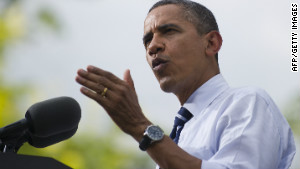Editor's note: Howard Kurtz is the host of CNN's "Reliable Sources" and is Newsweek's Washington bureau chief. He is also a contributor to the website Daily Download.
(CNN) -- When blogger Andrew Sullivan began urging readers to support his online venture, I could hear journalists everywhere slapping their foreheads and saying:
Hey, why don't I try that?
Lots of luck.
But all the chatter about whether Sullivan can get his followers to part with $19.99 a year to read his provocative posts on politics and life misses the larger point. He is doing what most journalists must do to survive in this digital age, and that is building a personal brand.
 Howard Kurtz
Howard Kurtz Sure, few are as well known, as prolific and as possessed of sheer writing talent -- not to mention a taste for picking fights -- as Sullivan. But in ways that are starting to look inescapable, he is determined to turn his relationship with readers into cash flow.
Watch: Does Oprah still have the cultural clout to save Lance Armstrong?
First, the back story. Sullivan, a former editor of the New Republic, was blogging's first breakout star a dozen years ago, when the term was still associated with strange people in their pajamas. I followed him closely because I was, at the time, the first blogger at the The Washington Post.
 Previewing Obama's DNC speech
Previewing Obama's DNC speech Sullivan has since taken his Dish site to Time, the Atlantic and, most recently, the Daily Beast, where I work. His decision to leave the Beast when his contract expired at the end of 2012 has drawn plenty of attention, especially since he says he has already raised $440,000 from his fans.
Watch: Did Brent Musburger go too far in praising Alabama quarterback's girlfriend?
"We felt more and more that getting readers to pay a small amount for content was the only truly solid future for online journalism," Sullivan writes. He plans to use the money not only for himself but also to pay his small staff.
As a British, Catholic, gay writer with HIV who has morphed from a conservative intellectual to an Obama-boosting intellectual, Sullivan crosses lots of lines and has an unusually passionate following. He isn't putting most of his content behind a pay wall, so he's essentially asking folks to pay up out of loyalty. And he doesn't plan to accept advertising.
In a very real sense, though, most journalists these days are advertising themselves (and yours truly is no exception).
When you see them on Twitter, posting thoughts and witticisms and links to their work, they are doing more than representing their employers in public. They are promoting themselves.
When they pop up in cable news segments or on radio shows, sounding off about their stories, or just sounding off, they are promoting themselves.
Watch: How mainstream media fell for Twitter hoax about Justin Bieber
We are seeing the rise of hybrid journalists, like Ezra Klein, who blogs for The Washington Post, is an MSNBC contributor and writes a column for Bloomberg News. Or Andrew Ross Sorkin, who writes a column for The New York Times, runs its DealBook blog and co-hosts CNBC's Squawk Box.
But below the level of the brightest stars, there is a survival strategy at work. Newspapers and magazines are shrinking. I've lost count of the number of reporters, columnists and critics who have been laid off or taken buyouts, only to launch blogs, join websites, churn out e-books or otherwise seek a foothold in the digital economy.
News organizations used to frown on this sort of thing; now they have bookers to get their folks on TV and social media editors to push their stars on Facebook and Twitter. The Times once discouraged its people from going on television; now, like most newspapers, it has its own studio.
If there was once a line that stopped journalists from engaging in blatant self-promotion, it long ago vanished. But here's why that's not a bad thing. Most print journalists were once viewed as remote figures engaged in one-way communication. Now they've been forced to engage in a dialogue with their readers, responding to tweets, posting pictures, sharing more of themselves with those who consume the news. The walls of the fortress have been breached.
"There's nothing tawdry about offering your wares on the street. It's how magazines and newspapers started," Sullivan told The New York Times.
Sullivan has been a trailblazer on this front. And while it's hard to imagine that many others could get people to pay for their scribblings, it was once unthinkable that millions would buy individual songs on iTunes or pay for online access to a newspaper.
Follow us on Twitter @CNNOpinion
Join us on Facebook/CNNOpinion
{ 0 comments... read them below or add one }
Post a Comment